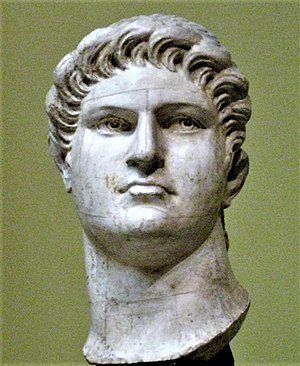"not the wisdom of this age, nor of the rulers of this age, who are coming to nothing" (1 Cor.2:6).

Two great forces control the modern world: the University and the Parliament (to put it the other way, the school and the scepter). How credulously falls the world before the sublimity of the educated; how feebly it creeps before the iron-fist of the rulers! But, the world has God universally despised and denied. To many the God-idea is outdated. But, then, how long shall the world-ideas last??
When Paul was writing his epistle to the Corinthians (around AD 57), Nero, "the emperor who fiddled while (later) Rome burned", held the reins of the Great Roman Empire. He was forced to commit suicide on June 7, AD 68. A few days before his arrival at Corinth (sometime between 50-52), Paul had been at Athens, the ancient capital of philosophy, and had talks with the Stoics and the Epicureans. They had taken him to Mar's Hill from where he preached his famous sermon on "The God of the Altar to the Unknown God". Only a few responded positively, while the rest ruled him away, because they thought it was silly and unscientific to have mentioned the resurrection of the Christ. Well had Paul begun, when he writes this epistle, that "the message of the cross is foolishness to those who are perishing" (1Cor.1:18), and that "since, in the wisdom of God, the world through wisdom did not know God, it pleased God through the foolishness of the message preached to save those who believe" (v.21).
Paul chose not to imitate the method of the world, whose cup of wisdom and scepter of power would soon fall and crash with the tides of time, and then finally extinguish before the majesty and might of the eternal Word of God. He writes: "my speech and my preaching were not with persuasive words of human wisdom, but in demonstration of the Spirit and of power" (2:4). But, that doesn't mean that the message didn't contain wisdom, for can wisdom lie anywhere than in the message of God: "we speak wisdom among those who are mature," he writes "yet not the wisdom of this age, nor of the rulers of this age, who are coming to nothing" (v6).
The glaze and the glory of this world is short-lived. Blessed is he who has apprehended the wisdom and the might of God and the age to come!

When Paul was writing his epistle to the Corinthians (around AD 57), Nero, "the emperor who fiddled while (later) Rome burned", held the reins of the Great Roman Empire. He was forced to commit suicide on June 7, AD 68. A few days before his arrival at Corinth (sometime between 50-52), Paul had been at Athens, the ancient capital of philosophy, and had talks with the Stoics and the Epicureans. They had taken him to Mar's Hill from where he preached his famous sermon on "The God of the Altar to the Unknown God". Only a few responded positively, while the rest ruled him away, because they thought it was silly and unscientific to have mentioned the resurrection of the Christ. Well had Paul begun, when he writes this epistle, that "the message of the cross is foolishness to those who are perishing" (1Cor.1:18), and that "since, in the wisdom of God, the world through wisdom did not know God, it pleased God through the foolishness of the message preached to save those who believe" (v.21).
Paul chose not to imitate the method of the world, whose cup of wisdom and scepter of power would soon fall and crash with the tides of time, and then finally extinguish before the majesty and might of the eternal Word of God. He writes: "my speech and my preaching were not with persuasive words of human wisdom, but in demonstration of the Spirit and of power" (2:4). But, that doesn't mean that the message didn't contain wisdom, for can wisdom lie anywhere than in the message of God: "we speak wisdom among those who are mature," he writes "yet not the wisdom of this age, nor of the rulers of this age, who are coming to nothing" (v6).
The glaze and the glory of this world is short-lived. Blessed is he who has apprehended the wisdom and the might of God and the age to come!
Comments
Post a Comment